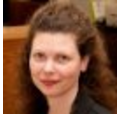It should be noted that this phenomena of pushing back against the system in small and various ways did not work under the brutality of the Stalin regime and it refers to Soviet life generally after Stalin's death when the system relaxed in some ways. Parsons goes on later to explain how the breakdown of this space-order-freedom framework in the 1990s led to social alienation as people seemed to drift off onto their own. This alienation was exacerbated by the requirements of neoliberal capitalism.
"The people we talked with were eloquent storytellers when asked about their lives and how things had changed in the early 1990s. They were intent on answering the question, 'What makes life worth living?' And what made life worth living was a sense of being needed." (p. 9)
Some Westerners eschew the idea that Russians have a distinct outlook that is more interested in a sense of meaning and other non-material pursuits -- a soulfulness -- as alluded to in an earlier quote about social connections and being needed. Contrary to these naysayers, there does seem to be some merit to this cultural difference, but as with any group of humans it is hardly simple. As evidenced by surveys Parsons cites, there is a deep cultural interest in a meaningful life and what that means in terms of their social relationships and the consequences of having those relationships torn asunder via the various upheavals of the 20th century, particularly the dissolution of Soviet society in the 1990s. That dissolution produced a trauma that translated into millions of premature deaths, especially among Russian men who died from accelerated alcoholism, heart attacks, suicides and homicides. Women were also affected by the mortality crisis but on a smaller scale as well as in a qualitatively different way.
"Men's sense of neededness centered on being able to adequately provide -- a possibility that narrowed substantially in the early 1990s. Women's sense of neededness was more diffuse and included, importantly, being able to hold their families together in times of hardship. In this sense, the early 1990s meant that women were sometimes quite desperately needed. They were undoubtedly burdened by this responsibility, but they may have also been preserved by it." (p. 11)
This is reminiscent of Viktor Frankl's observation in his book Man's Search for Meaning that his experience in Nazi concentration camps showed him that those who were able to survive in the horrendous physical and psychological conditions were not necessarily the most physically hardy or stubborn, but those who were able to provide something to their fellow prisoners -- comfort, an extra piece of bread or just a dark sense of humor -- and who were able to find some larger meaning in suffering, both their own and those around them.
Recent research in social psychology reveals the difference between a meaningful life and a happy one -- the difference, in large part, being that meaning derives from what you are able to give and happiness from what you are able to receive. (2)
It can be argued that without struggle, there is no opportunity for meaning. This is not to celebrate or be tolerant of systems of gratuitous suffering, but to recognize that the complementary relationship between a sense of meaning and happiness requires both some degree of struggle as well as interdependence among people.
This is also not to suggest that Russians' strong interest in a meaningful life, as reflected in their impressive tradition in the arts, philosophy and literature, means they are austere, ascetic or masochistic. As Suzanne Massie, an academic expert on Russian history and culture, once noted with respect to the French conclusion that Russians "love to suffer":
"Russians do not "love" to suffer, but through their history they have often had to suffer and to endure. Their experience has bred in them a serene knowledge that there is a limit to what human beings can understand or change, and an acceptance of everything that life has to offer of both joy and tragedy." (1)
Among people they know and trust, Russians reportedly tend to be warm and effusive. They also know how to enjoy the finer things when they have access to them as was demonstrated during the Czarist period when lavish dress and architecture abounded. Even peasant attire and everyday items had elaborate and decorative designs as pre-Soviet Russian artisans and craftspeople were numerous and renowned.
Russian Social Connections and Social Morality
Along with the importance of a sense of meaning in life there is an interest in the separate but related issue of morality. From the time of Kiev Rus in the 10th century, when Prince Vladimir chose the Orthodox religion, which has seen a resurgence in post-Soviet Russia, the Russians have put their own unique stamp on Christianity. As Massie described in her 1980 book on Pre-Soviet Russia, Land of the Firebird:
"[A] calm acceptance of fate and the sympathy for human suffering are perhaps the greatest strengths of the Russian people and the most basic expression of Russian Christianity." (1)
Though the church was repressed during the Soviet era, morality as reflected in the value of social connections remained. As Parsons writes:
"Social connections in Russia remain a way of living a moral life amid circumstances widely regarded as immoral"Russian social connections allow individuals to access a moral space beyond the self and beyond the mundane. When middle-aged Muscovites lament a loss of sociality [from the Soviet period], they are commenting on a perceived loss of morality." (Parsons, p. 18)
Parsons describes why one older Russian friend had refused to go into a trendy cafe in modern day capitalist Moscow, feeling out of place:
(Note: You can view every article as one long page if you sign up as an Advocate Member, or higher).





